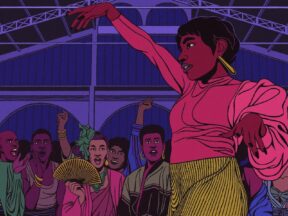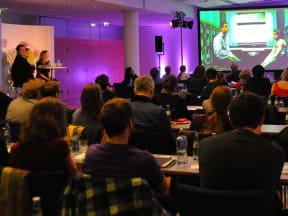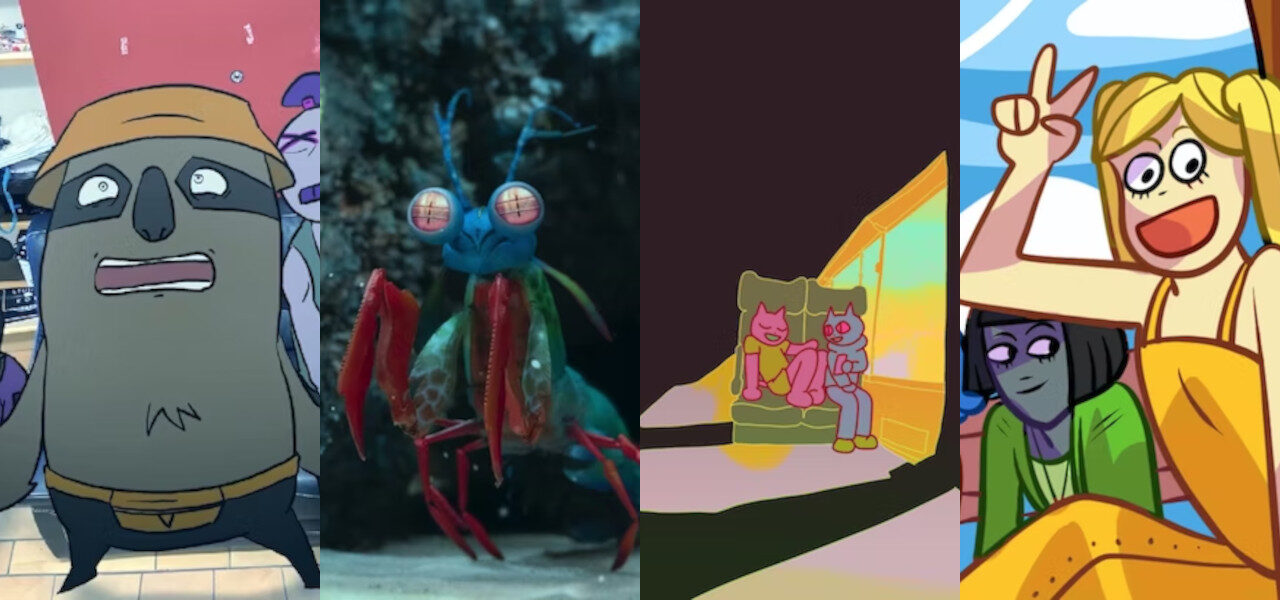
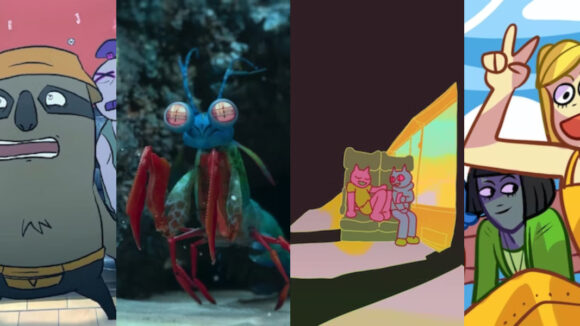
Cartoon Springboard 2022: 4 Pitches That Stood Out
Cartoon Springboard, one of Europe’s key pitching events for emerging talent, was held in Madrid for the first time this year and wrapped up last week after three intense days of seminars, project pitches, and networking events.
In total, 169 people attended this year’s Springboard from 24 countries. Thirty-eight came as representatives of the 26 projects which were pitched, and 26 experts from production companies, broadcasters, and platforms across Europe were brought in to evaluate the pitches, offer suggestions, and maybe even get involved with those they liked best. After each project pitch, three of the attending experts would take the stage and offer praise, criticism, and advice in mostly equal parts. After their input, the audience – mostly other pitchers and professionals – was able to ask questions of their own.
More than half of the pitches selected by the organizers this year were comedic in nature. They also selected eight animation projects that emphasized groups and communities over the individual hero. There were, of course, projects that leaned towards adventure, drama, and more serious themes including racism, sexual identity and orientation, mental health, and immigration.
Cartoon Springboard 2022 also saw an influx of women creators getting involved. Forty-four per cent of the pitches came from women creators, while 42% of the directors were women, which Springboard says demonstrates a constant evolution for the program and how young women can make their way up into the animation industry.
Below, we dive into four of the pitches that stuck out to us from attending the first day of pitches at Cartoon Springboard.
Surkotés (Belgium)
Director: Baami-Bandema Mpoza Godfrey
Writers: Martin Delporte, Nicolas Laasman, Emin Ben Kaddour, Pablo Exposito Lopez
Format: Transmedia including a 2d animated web series
Looking For: Producers, partners, and to expand the team with new (especially female) talent
Experimenting with various forms of interactive and passive media, Surkotés was the furthest developed project we saw pitched, with four episodes already available on Youtube. The series turns on Boniface “Ben” Bourgeon, a student who has just arrived in a “kot,” a type of private-rented student housing in Belgium. There he experiences the ups and downs of student life with a cast of anthropomorphic characters including a demon, a lightbulb, and a boombox with a thicc backside.
In the show, 2d animated characters are superimposed over live-action backgrounds, a stylistic choice that thrilled the pitch’s panel of experts including Mark Cumberton from Jam Media, Balint Gelley from Cub Animation, and Dario van Vree from Studio Pupil. The panel was less enthused by the project’s lack of female characters and behind-the-scenes talent, an issue that presenters Baami-Bandema Mpoza Godfrey (director) and Martin Delporte (screenwriter) said they’re keenly aware of and working to remedy as soon as possible.
9 Million Colors (Czech Republic)
Director: Bára Anna Stejskalová
Producer: Bionaut Animation with co-producer Divize
Format: Stop-motion musical short
Looking For: Cinematographer, post-production services, co-producers, broadcasters
Mantis shrimp are fascinating aquatic creatures that rank among the most colorful in the natural world. Their eyes have more photoreceptors than humans, meaning they can see into the UV spectrum. During mating rituals, they actively fluoresce. Nine Million Colors creator Bára Anna Stejskalová (Love is Just a Death Away) used those traits as the visual basis for her ambitious stop-motion musical about one such shrimp who befriends a blind fish. Playing with light and color, the project’s teaser offered a truly unique proposition.
Pitch panel experts Cristian Jezdic of beQ Entertainment, Corinne Kouper from TeamTo, and David Jabrane from France Télévisions agreed, praising the film’s innovative use of light to create a vibrant underwater atmosphere. Their primary concern was a disconnect between the short’s intended audience and the sometimes-violent content of a harsh underwater environment where animals frequently dismember one another for their own gain. Maybe the project isn’t quite for young children, or maybe it will play differently in different countries where kids are exposed to certain themes at a younger age.
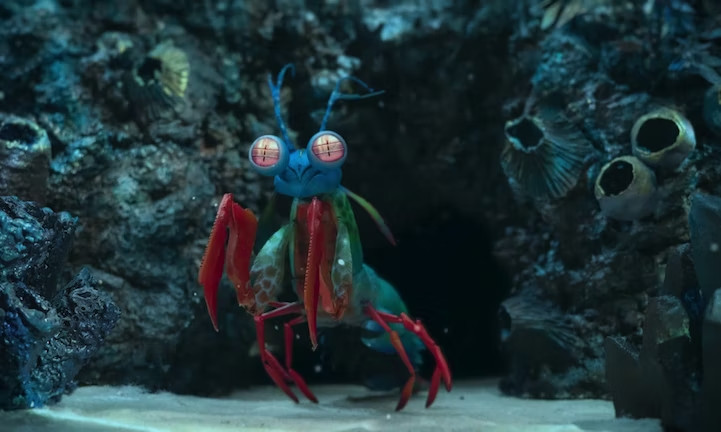
For an Hour and a Half (France)
Director: Marie Derambure
Writer: Paco Moccand
Format: 2d animated series
For an Hour and a Half is a fit-for-purpose series of short films that take place across the French train voyage from Perpignan to Montpellier. Each episode is planned to last the duration of time between the stops of the popular trip; so theoretically a passenger making the voyage could watch the entire thing while riding the train and finish as they arrived at the last stop. The series will follow two young men who meet on a train and embark on a voyage-long romance. One is recently single and doesn’t believe in short-term relationships, and the other tries to convince him that a love that lasts only a couple of hours can be just as enjoyable as one that lasts years.
BBC Children’s Lucy Pryke, Balint Gelley from Cub Animation, and Dario van Vree from Studio Pupil were effusive in their praise of the series’ focused narrative and vibrant, impactful art style, which animator Marie Derambure says she’s keeping as “simple as possible.” The primary concern among panelists was the non-conformist format of the series, with each episode being a different length. Some people in the room suggested that perhaps the episodes could be combined into a feature as their combined length would be 90 minutes, a more attractive format for platforms and broadcasters.
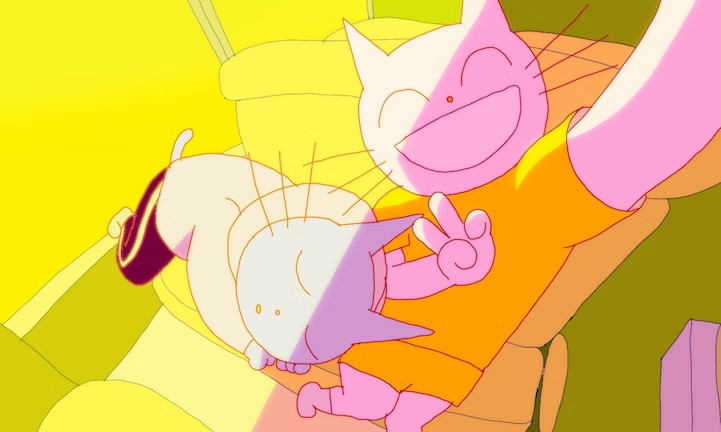
Salty Banana (Croatia)
Director, Writer, Animator, Everything: Mihaela Erceg
Format: 2d animated web series
Looking For: Partners and artists to help with animation
The day’s final pitch was – and this is no slight to any of the others – the best received and most entertaining. Salty Banana creator Mihaela Erceg’s stage charisma was noted by the judges, at which point it was shared that she does stand-up comedy back in Croatia. Nobody was surprised, as her pitch had many in the room laughing from the word “go.”
Salty Banana turns on a group of food-themed young women (if in name only) from diverse, often traumatic, backgrounds. Citing influences such as Seinfeld and Friends, the comedy series follows an almost-sitcom format with each episode proposing a new problem for one of the girls that the others help her solve. The only worry expressed by experts Daniella Gallegos of Tribes Media, Stephan Roelants from Melusine Productions, and Fabian Driehorst of Fabian&Fred was that in the project info they’d received before the pitch, some characters occasionally came off as a bit too salty. After seeing Erceg’s tasty pitch, however, they were sure she’d find the right recipe to make the show work.
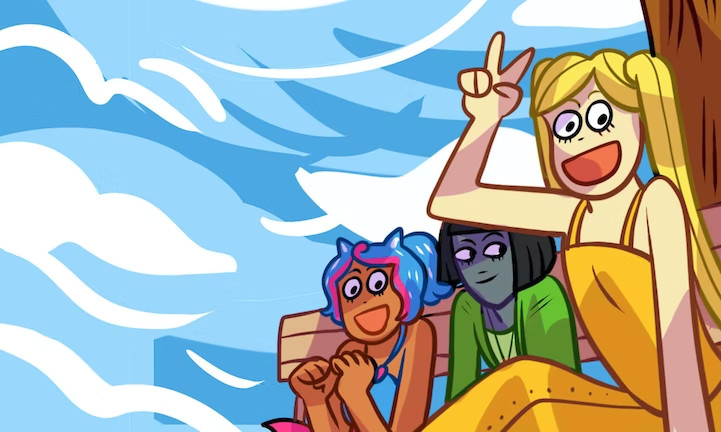
Pictured at top: Surkotés, 9 Million Colors, For an Hour and a Half, Salty Banana

.png)
